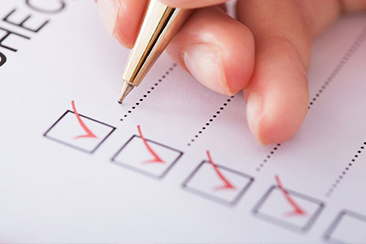




Buying a property, be it residential or commercial, is not just a dream that we see with our eyes wide-open but also an investment for life. However, it will not take more than a blink of an eye to turn the same dream into a nightmare, if the property chosen has documents or approval discrepancies. In this blog, we will discuss the most important documents that should be there with you when you have bought a commercial property in Noida.
Hence, here in this article we are listing down the very common yet very important 12 questions that needs to be asked and answered before closing the deal.
1) Sale Deed – A mainstay legal document, sale deed is an undertaking of sale of the property and ownership transfer of the property from the seller to the buyer. It is mandatory to register the sale deed, however before that it is imperative to execute the sale agreement and ensure it is consistent with all the terms and conditions buyer and seller has agreed upon. It is extremely important for the buyer to check, if the property he is investing into has a clear title and confirm from the local authorities about any encumbrance charges on the property; and this should be done before executing the sale deed.
* it is the duty of the seller to pay all the statutory payments applicable on the property, like – property tax, water and electricity charges, maintenance charges, etc. before executing the sale deed.
2) Mother Deed or the Parent Document – As the name suggest, it is a vital legal document that tracks down the antecedent ownership of the property right from its first owner. The deed contains the details of the ownership changes, be it through – inheritance, partition, sale or gift. It is crucial that the Mother deed has all these records in sequence and must be continuous and unbroken. However, if there arises an occurrence of a missing sequence, the buyer must try to fetch records from the registering authorities. The document must hold records of the owners till date.
3) Building approval plan – More of an approval document, a building plan is certified by the Municipal authorities. The owner has to get a building plan approved by the jurisdictional Commissioner or a government official authorized by the jurisdictional Commissioner. The approval is sanctioned considering various factors, like – zonal classification, plot depth, road width and floor area ratio. A set of documents are needed to obtain an approved building plan, like – title deed, property PID number, property assessment extract, city survey sketch, up-to-date tax paid receipt, property drawings, earlier sanctioned plans (if any), copies of demand drafts, a land use certificate issued by the competent authority and foundation certificate (if any). It is compulsory to hire a registered architect to draw a building plan that meet all the applicable bye laws. It only takes 4-5 working days to get a building approval plan, provided the conditions are met.
4) Khata Certificate and Extract – derived from an English word ‘account’, it is a record of an individual owning a property. A Khata Certificate is compulsorily needed for the registration and transfer of a new property. Khata Extract is only getting the property subtleties from the assessment registrar. The extract is required while buying a property and while obtaining trade permits/licenses. The document is commonly referred as A Khata and B Khata wherein A Khata include properties registered under the jurisdiction of Municipalities or Corporation with authorized construction of the property and B Khata include properties registered under local jurisdiction with properties that have violated constructions. It is obvious that one should avoid investing properties listed in B Khata. However, the buyer can convert a B Khata property to A Khata by meeting all the bye laws and by paying all the penalties levied on the property.
5) Encumbrance Certificate or the EC – Encumbrance represents liabilities created on the property or the charges in the ownership. The document holds the details of all the registered transactions made on the property. The certificate details are sought for a fixed period of time and offer evidences on the purchase or sale of the property and the presence of any loan on the property.
6) Receipt of Betterment charges – Also known as the development charges or the improvement fees, the amount goes to the Municipality or Corporation Authority. The payment to the authorities must be done before a Khata is issued. It is the duty of the developers to pay this amount to the municipal body.
7) Power of Attorney or the POA – It is a legal procedure by which the owner of the property gives another person right over his property. It could be a Special Power of Attorney (SPA) or a General Power of Attorney (GPA).
8) Receipts of recent tax payments – These receipts ensure that the seller has made all the required property taxes to the government/municipality and there is no pending amount on the property. The buyer must ask for the receipts and get it crosschecked from the authorities. In case, the seller does not provide the buyer with these receipts, the buyer must contact the authorities with the property’s survey number and get information on the ownership of the land.
9) Stamp duty – Stamp duty is a tax, much like the income tax and sales tax, collected by the state governments. It is mandatory to pay stamp duty on time and in full amount. The document that verifies that stamp duty is paid, is an important legal document.
These were a few documents that are extremely important for your property buying deal. Make sure you have the complete list with you and tick mark the ones that the buyer is providing and ask whatever is missing. But never complete the deal without achieving all the documents.
Source: https://www.linkedin.com/pulse/checklist-buy-property-sahil-gupta